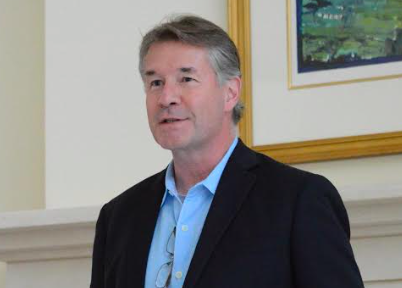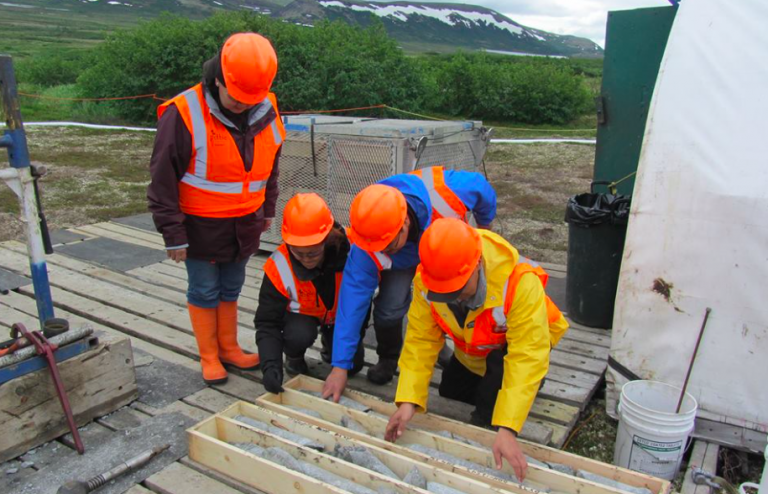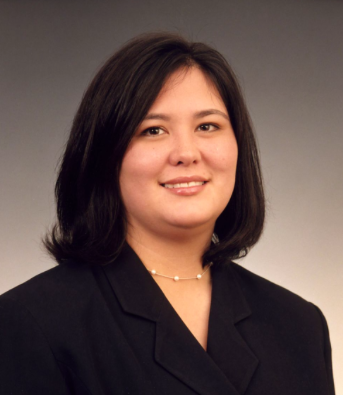PRISON SHIRTS FOR SIX WOMEN, ONE MAN AFTER VEHICLE HEISTS
Over the weekend, Anchorage police officers with the Patrol Division and detectives with Property Crimes Unit made seven arrests in connection with vehicle theft investigations.
They also issued a warning to car owners that thieves have started targeting older model Subarus.
Police arrested:
Chelsey Sallaffie, 24, who was booked for Vehicle Theft 1, Leaving the Scene of an Accident, Reckless Driving, Harassment 1, Assault 4, Theft 2, and Resisting Arrest.
On Friday at 3:15 p.m., officers were dispatched to the 3900 block of Oregon Dr. for a report of a reckless driver. During the traffic stop, officers discovered the vehicle was reported stolen.

They took Sallaffie, the driver of the red Chevy pickup, in custody. Sallaffie was screaming and being uncooperative with officers while being detained. She was kicking at officers and spit in one officer’s face. Officers also discovered the she was wanted for a hit and run collision that occurred earlier that day at 5th Ave. & Cordova St. This is APD Case: 18-26117 and 18-26125.

Lydia Barce, 25, also known as Lydia Anne Payne Barce, was arrested for Vehicle Theft 1, Theft 2, and Theft 4. On Saturday, at around 3:30 a.m., officers with the Patrol Division were in the area of the 4600 block of Spenard Rd. when they observed a 1991 red Subaru Legacy in the parking lot of the Alex Hotel with Barce in the driver’s seat. The Subaru was reported stolen. This is APD Case: 18-25961

Mary Waskey, 34, was arrested for Vehicle Theft 1 and Theft 2. On Saturday, at around 3:15 p.m., officers with the Patrol Division were dispatched to the 7500 block of Boundary Ave to recover a stolen 1999 green Subaru that was in Waskey’s possession. She was taken into custody. APD Case: 18-26158

Gwendalyn Brooks, 30, was arrested for two counts of Vehicle Theft 1, two counts of Theft 2, Eluding, and Resisting Arrest. On Sunday, at around 1:50 p.m., officers with the Patrol Division ran a license plate of a 1987 gray Toyota pickup in the Airport Heights area and the vehicle was listed as stolen.
When a traffic stop attempt was made, the driver – later identified as Brooks – refused to pull over and kept driving. When officers finally stopped the vehicle, Brooks exited and started to run; she was apprehended and the passengers were called out of the truck.
Brooks was uncooperative when being questioned by police. She was taken into custody along with the other passengers. Through the investigation, there was enough evidence to confirm that Brooks had stolen another vehicle as well – a 2005 red Chevy pickup that had been reported stolen the day before. This is APD Case: 18- 25444 and 18-26226

Tashia Lee Seton, 27, was a passenger in the stolen gray pickup with Gwendalyn Brooks. She was found to be in possession of meth at the time of the incident. Seton was arrested for Misconduct Involving a Controlled Substance 2, Criminal Mischief 5, and an existing Misdemeanor Warrant for Fail to Appear. This is APD Case: 18-25444
Florence Giannini, 50, was also a passenger in the stolen gray pickup with Gwendalyn Brooks. Giannini was arrested for Criminal Mischief 5. This is APD Case: 18-25444

Joseph Artz, 31, was arrested for Vehicle Theft 1 and Theft 2. On Sunday at around 3:55 p.m., officers with the Patrol Division located a stolen vehicle in the Carrs parking lot at 5600 Debarr Rd. The vehicle, a 2003 blue Toyota 4Runner, was unoccupied. When Artz returned to the vehicle, he was taken into custody. APD Case: 18-26395
Detectives have also discovered that car thieves are now targeting late 1990’s model Subarus. Criminals are shaving or filing down keys and using them to open the doors and start the vehicles.
Police provided this photo from the arrest of Lydia Barce in which multiple keys were found possibly connected to other investigations.














